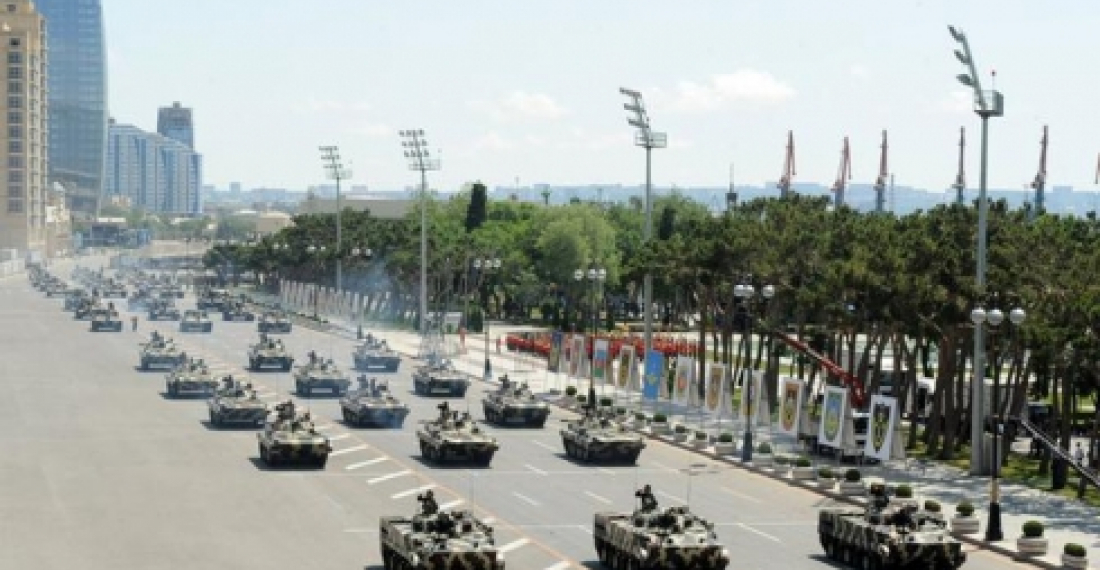IS FORCE A SOLUTION FOR RESOLVING THE KARABAKH CONFLICT?
Two developments in the last few days left an air of uncertainty and discomfort in international quarters. First in Kazan on Friday,24 June, the long heralded summit between the presidents of Armenia and Azerbaijan with the president of Russia failed to achieve a breakthrough in the negotiations. The sides blamed each other, the international community expressed disappointment , and the OSCE co-Chair prepared for another round of shuttle diplomacy.
Two days later, Baku saw the biggest military parade in the history of independent Azerbaijan. Elements of the Army, Navy and Air force displayed some of the hardware that has been bought at great expense in recent years. Baku has been on a military shopping spree, with the military budget this year exceeding USD 1.2 billion. On paper, the Armenian Military budget is more modest. But given the opaqueness in the arrangements between the Armenian Armed forces and the Russian forces based in Armenia, the Armenian figures may not be telling the whole story. Both sides talk peace most of the time, and they talk war sometimes.
Some experts have taken to drawing up doomsday scenarios - an Azerbaijani lightning strike to liberate its territories, or an Armenian pre-emptive strike to neutralise any Azerbaijani threat. Both scenarios are of course possible and the rhetoric coming out from Baku and Yerevan fuels this speculation.
Both scenarios however, in the unlikely event that they will happen will not lead to a solution.
A renewed conflict is likely to be long and messy, and will result in turning the problem into a new format but not a solution. Luckily Armenia and Azerbaijan are ruled by calm people who calculate well before any move. That is why they have up to now opted for negotiations.
But the failure to achieve even modest progress in the negotiations is putting a lot of stress on the fragile cease fire on the line of contact where thousands of soldiers from both sides face each other in World War 1 trench conditions. Both sides report daily breaches of the cease fire, and claim casualties.
Strengthening the cease fire and strengthening the international monitoring of its compliance has now become a priority to give the negotiations more time. However the cease fire must not become an end in itself.
Patience is a virtue in conflict resolution, but senseless procrastination is not. The doomsday scenarios cannot be postponed for ever.
Prepared by commonspace.eu editorial team
Photo: Military parade in Baku on 26 June 2011
(photo courtesy of news.az)







